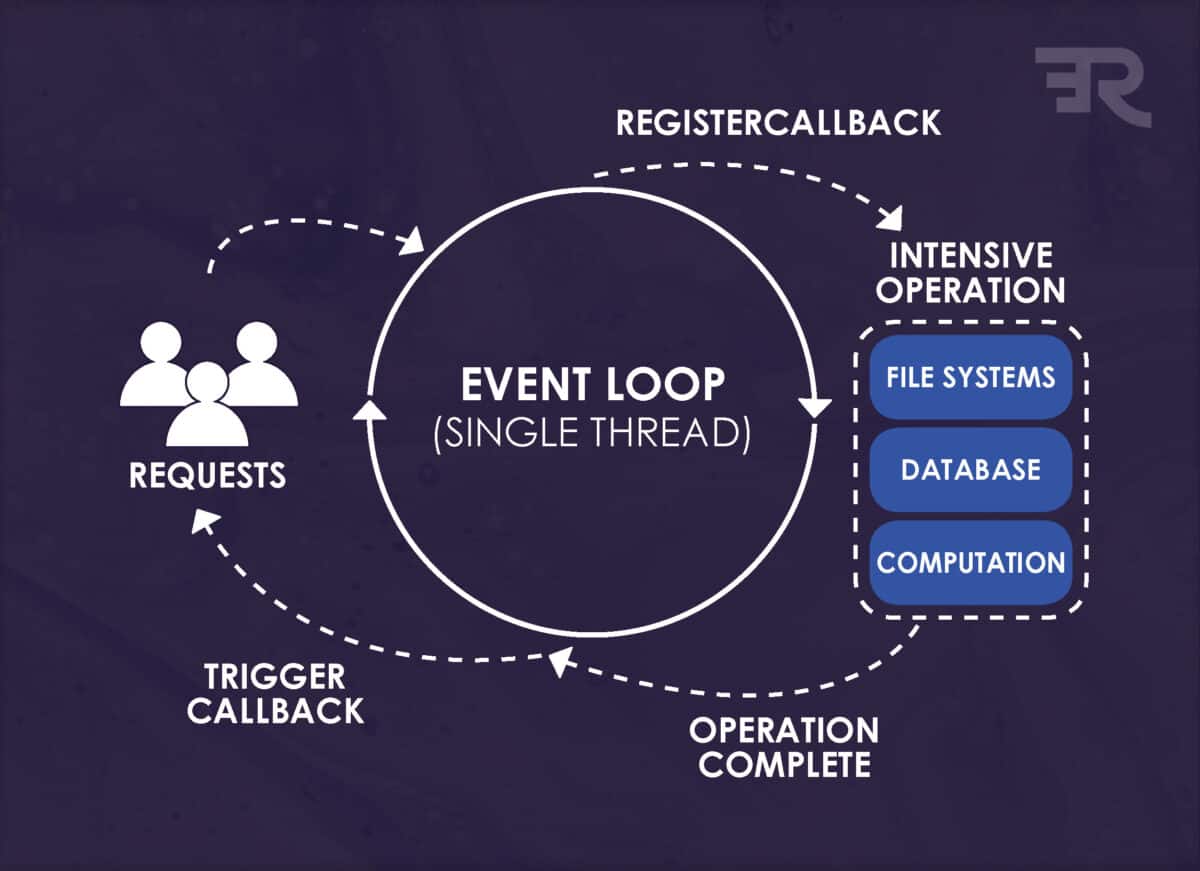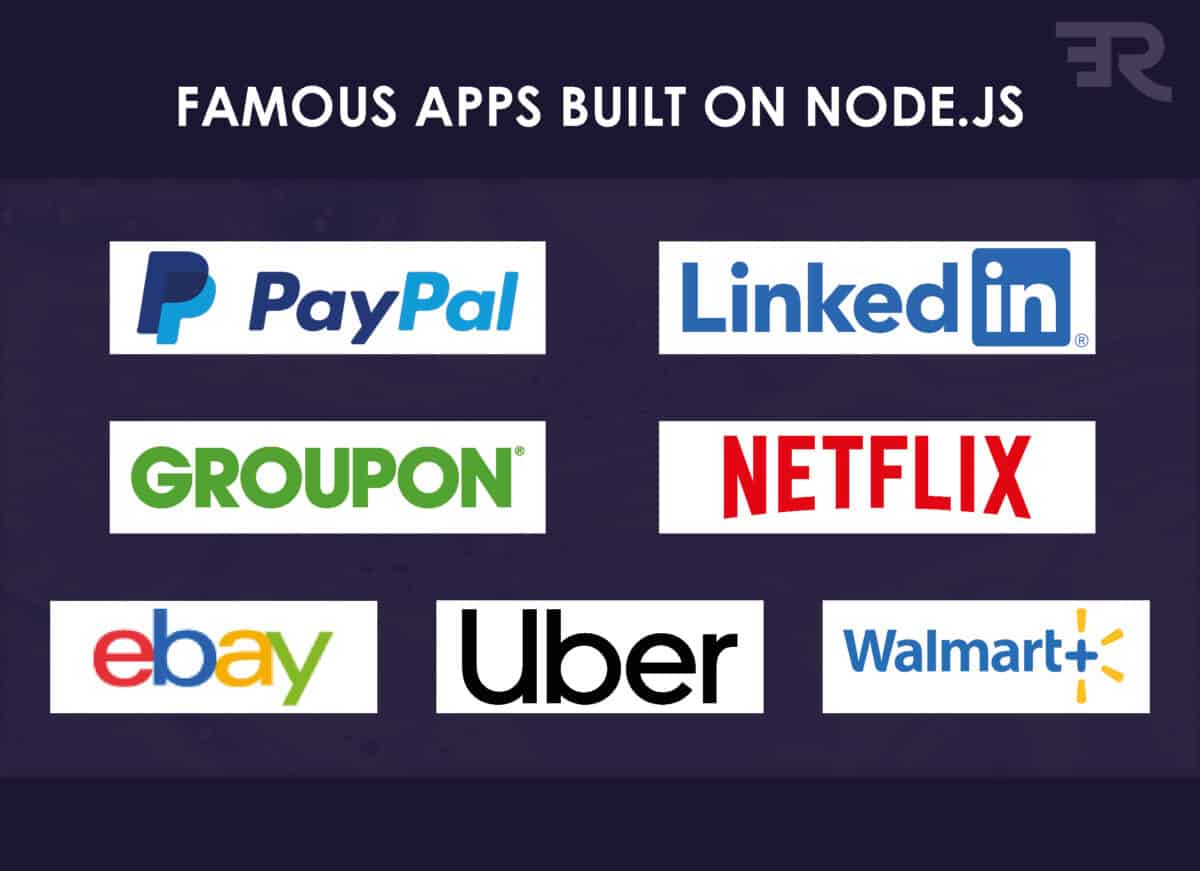
14 min read
Outsourcing Node.js Development: A Guide to Finding the Perfect Team
After establishing the requirements of your software development project, one of the first decisions to make is whether to outsource or opt for in-house software development. You make that decision depending on the specific needs and goals of the company; both approaches have their pros and drawbacks. For instance, most companies in 2023 struggle with hiring an in-house development team in a limited time because of the talent shortage. At the same time, working with freelancers is often unreliable and may complicate business processes.
When talking about Node.JS development, finding a skilled team of Node.JS developers is even more difficult. With back-end technology, you’d normally want to find a senior professional for even an average project. And those senior guys ask for higher rates that are often unaffordable for early-stage startups that rush to ship an MVP as quickly as possible. Because of this, young startups often choose outsourcing Node.js development to a third-party company or a freelancer, because they feel the benefits of affordability outweigh the potential risks.
At Expert Remote, we’re offering a different model of cooperation with startups, even though it’s somewhat close to outsourcing. In this article, we’ll talk about the perks of Node.js development and why you should choose Expert Remote as your source of top-notch coders.
History of Node.js & Brief Breakdown of Its Functions
JavaScript is the most popular programming language on the planet. It’s used for web development to add interactivity to web applications and pages. It handles animations in UI, such as complex navigation, image sliders, and other interactive design items that are difficult or impossible to build using just HTML and CSS.
Before 2009, JavaScript was only used in client-side scripting — but, after Ryan Dahl came up with Node.js, it was finally possible to use it on the server side. That meant web development could now be done using one language.
Node.js is a JS technology, a runtime environment that allows developers to build scalable web applications with high performance. Node.js is open source, built on top of the Google Chrome V8 JavaScript engine. This engine compiles JavaScript code into native machine code, so Node.js can be used to build apps for various operating systems including Windows, macOS, Linux, and other Unix-like systems.
Node.js provides an event mechanism (or event loop) that ties into a non-blocking I/O model that, in a nutshell, makes it possible for web software to handle large streams of data without lagging.

Apart from the event-driven structure, it also has a large ecosystem of third-party modules and packages available via the NPM package manager, which allows developers to easily extend Node.js functionality.
In general, a lot of startups and other businesses opt for Node.js because it:
- Cuts the loading time by 50-60%. Because of its event-driven architecture, based on a non-blocking I/O model, when a Node.js application makes a request to the server, it doesn’t wait for a response before moving on to the next request.
- Decreases development cost by 58%. It has a vast ecosystem of modules and libraries and offers lots of opportunities to utilize code reusability across client-side and server-side programming (re: JavaScript). The same language on the back and front end also makes communication between developers and maintaining code quality faster within an entire web application more efficient.
- Is very popular. Partially because of JavaScript, partially because it’s so easy to learn, Node.js is well-loved among programmers, in large and small development companies.
Many large companies choose Node.JS. Among them are Netflix, Amazon, Uber, Reddit, eBay, Tumblr, PayPal, and LinkedIn. Some, for instance, pick it for its features related to working with networks — like Amazon, and others — like Netflix and Paypal — use it to cut the startup time.
What Projects Are the Best Fit for Outsourcing Node.Js Development?
Many development companies use Node.JS for software development — and lots of them outsource Node js development to third parties. So, which types of projects a Node.js development company handles most often?
1. Real-time applications. Node.js is excellent for building real-time applications that require fast digital data streaming and processing, such as:
- Chat applications, where Node.js can handle many chat users in real-time. They also can be built quickly, because Node.js can connect to many third-party packages that help do it.
- Online games, similarly, have a lot of users and a lot of real-time interactions, particularly within multiplayer, which Node.JS can handle.
- Real-time analytics dashboards. It’s easy to build data visualization tools and various IoT-driven systems on the basis of Node.js and node package manager as well.
- Collaborative applications. Because of its resilience and scalability, Node.js is also used for building collaborative tools, such as online IDEs, project management tools (see Trello), and shared document editors.
- Applications with video streaming.

2. E-commerce websites. Node.JS is considered a powerful technology for developing e-commerce websites, offering many benefits such as faster page loading times, real-time data streaming, and efficient payment processing.
5. Social networking websites. Node.js can be used to create social networking websites, where real-time updates are necessary. Twitter and LinkedIn use it for that reason.
6. Single-page applications (SPA). Node.js is well-suited for developing single-page applications that require quick updates, high performance, and graceful handling of real-time interactions.
7. APIs. Node.js can be used to develop highly scalable and high-performance APIs that can handle multiple requests at once.
Overall, Node.js is a flexible technology that can be used in a wide range of projects, and its structure, performance, and scalability make it a very good pick for a lot of projects. It’s also easy to port Node.js code to JS-based frameworks and libraries that allow building cross-platform mobile applications, e.g., React Native and other technologies.
Why Do Businesses Outsource Node.js Development Services?
Now, let’s talk about why so many startups opt for outsourcing when building with Node.js.
5 Advantages of Working With an Outsource Node js Development Company
First, let’s go over the advantages of outsourcing in general.
| Cost-effectiveness | Outsourcing makes product development affordable: you can hire people from different locations (pay rates in Eastern Europe, for instance, are much lower than in America), you cut the cost of renting an office/supplying a new hire with a PC and other equipment, sometimes you even hire faster than for in-house positions. It doesn’t hurt that Node.js is open-source, so no need to purchase an additional piece of software as well. |
| Access to a larger pool of talent | Outsourcing Nodejs development allows you to access a larger pool of talent from all over the world. You have much more experienced developers to choose from. |
| Focus on product interface | That’s a common strategy for a lot of startups, to hire a back-end expert on freelance/outsource Nodejs development, while their in-house front-end devs are collaborating with UI/UX designers & stakeholders on the product interface. |
| Faster time to market: | Outsourcing can help you speed up your development process, as you can work with a team that has experience in Nodejs development and can deliver high-quality final products quickly (of course, this works only with very senior experienced developers). |
Outsourcing Node.js helps startups and other businesses build their product. With it, they employ fast, scalable, and well-performing back-end technology in their web application and utilize a cost-effective model of working with engineers. That helps service providers to achieve their business goals: such a development process is built to access high-quality development services at a lower cost and with greater flexibility. However, working with outsourcing service providers has a lot of risks to consider — people disappearing in the middle of the project, people exaggerating their experience, and so on. Expert Remote helps you mitigate those risks.
3 Reasons for Delegating Node.js Development to Expert Remote
Our clients trust us to find talented developers, UI/UX designers, product & project managers, solution architects, QA, BA, DevOps, and CTOs for them in a matter of days, instead of months. We’ve put in place processes that earned that trust; we vet people who want to work with us and make sure they have the integrity and expertise they’ve presented in their CVs. At Expert Remote, our clients find:
- Lightning-fast hiring. 400 people on our network are already waiting for projects to work with, and many of them are Node.js developers. So: you’ll find your match fast.
- Free 8-hour trial. You’ve interviewed the Node.js developer we’ve matched you with, but still have concerns about their future performance? We give you an 8-hour risk-free trial. No obligations to pay.
- Extremely high level of expertise. Only 1% of Node.js devs who want to join the Expert Remote network actually pass our vetting process, so we’re confident they are capable of delivering exceptional results.
When you outsource Node.JS development to Expert Remote, you’re hiring the top 1% of Node.js developers in the world.

When Is It Best to Outsource Node.Js Development?
Here’s when startup and business owners often realize they need to outsource Node.js development:
- Lack of in-house expertise. If a company doesn’t have the necessary skills or expertise in Node.js development, outsourcing can be a good way to find this talent.
- Limited resources. One of the major reasons startups fail is that they run out of runway, so to prevent that a lot of founders/CTOs pursue opportunities to save as much money as possible.
- Tight deadlines: If you need to complete your project quickly, outsourcing can be a good way to accelerate your development process and meet your deadlines. The main reason for that is first, it’s hard to find a senior Node.js engineer locally, and second, an experienced remote developer can give your in-house team a good example and motivate them to work faster.
Overall, outsourcing Node.js development can be a good option in many situations. You need to be careful during the hiring process, though: we’ve written a guide with interview questions for Node.js devs to help you with it: Hire Node.js Developers & Programmers in March 2023 — Expert Remote
Frequently Asked Questions About Outsource Node Js Development Services via Expert Remote
Here are the questions we often hear and the answers to them.
How Do I Find the Right Team for My Node.js Project?
To avoid confusion and fears about hiring the right person, we offer an eight-hour free trial. When you hire someone via Expert Remote, you have eight hours to see them in action for free. If you realize they aren’t what you actually thought and aren’t suitable for your project — a rare thing, but it happens — they stop working with you, you pay nothing, and we find you other candidates. But don’t worry, only 15% of our developers fail an interview or trial period with the client. So, with Expert Remote, you can be sure you’re working with the top 1% of Node.js engineers in the world.
What Should I Consider Before Outsourcing Node.js Development?
There are a few factors you should focus on before choosing the outsourcing company to be your partner:
- Scope of the project. Defining the scope of the project and making sure that you have a clear idea of the goals you want to achieve. This will help you communicate your requirements to the outsourcing company and ensure they can deliver you what you need.
- Experience and expertise. Ensure that the outsourcing company you choose has the necessary experience and expertise in Node.js development and in your industry in its portfolio. Don’t be reluctant to contact their previous client for a reference. (Especially if there’s their testimony on the company’s website.)
- Their remote work toolkit. The whole point of outsourcing is very rarely just to access talent one cannot find where they live. It’s to save money.
- Time zones. Ensure that there is sufficient overlap in working hours to facilitate communication with an outsourcing company.
Apart from that, it’s good to ask if they’ve worked on similar projects.
How Do I Manage Communication and Collaboration With My Outsourced Node.js Development Team?
There are a bunch of popular communication tools for remote team communication, like Google Meets, Zoom, Slack, and Skype. A lot of project management software suits usually accompany them: Atlassian products, ClickUp, and Trello.
Most projects nowadays are handled under agile methodology. It’s great for teams that are looking for a flexible and collaborative approach to app development, as it offers flexibility, higher productivity, faster results, collaboration, and continuous improvement. It enables teams to work collaboratively, adapt to changes quickly, and deliver high-quality software in a timely manner. The work is divided up into sprints, and after each of them, the team is required to show results — a part of the software, a feature, an element of UI design, and so on.
But no methodologies or communication tools will be useful for the project if there isn’t an experienced team manager to bring the team together. Conflicts happen between humans — that’s normal — but only the experienced manager can handle them and make sure they won’t ruin the inter-team relationships and the project’s progress. They are to make sure everyone’s listened to, and their concerns are mitigated. Apart from that, managers maintain transparency and encourage honest, open communication and feedback across the project, which helps everyone understand both what’s required of them and the value they bring to the team and drives business growth.
At Expert Remote, we make sure people we bring up on board can work alone and enjoy doing so — but we also check thoroughly for assertiveness, ability to communicate clearly, ask questions if something is not clear, and take initiative. We want to make it easier for managers and C-boards of the team our Node.js developers are about to be integrated into.
Remote tech teams & the future of work blog
Remote tech teams & the future of work blog
Your form has been successfully submitted.

